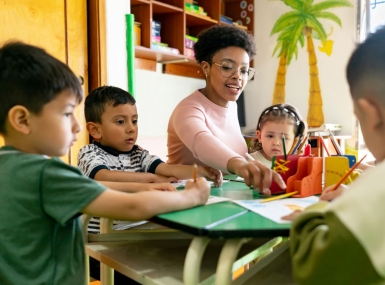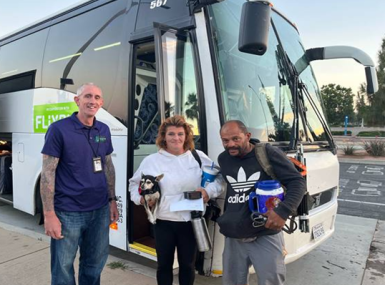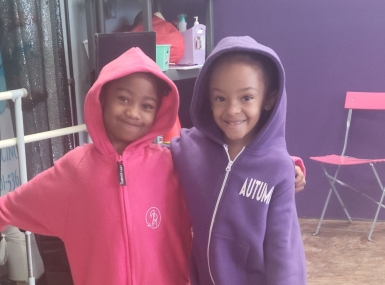Rosalynn Carter Institute helps caregivers across the country
Upcoming Events
Related News
An estimated 44 million Americans provide care to family or friends who need help with their daily activities. They spend an average of three work days taking on a range of tasks, from cooking meals, to scheduling appointments, to bathing or changing wound dressing. Many don’t consider themselves “caregivers” at all; they are parents, children, extended family or friends who do this work out of love. But they bear a heavy burden; caregivers are more likely to suffer from exhaustion, stress, and poor health.
Housed on the campus of Georgia Southwestern State University, the Rosalynn Carter Institute for Caregiving (RCI) was founded 30 years ago by former First Lady Rosalynn Carter to support caregivers through research, advocacy and programs, such as RCI REACH (Resources for Enhancing Alzheimer’s Caregiver Health) and Operation Family Caregiver (OFC). These programs educate and train caregivers providing care for people with Alzheimer’s disease and other dementias, and physically or psychologically injured soldiers and veterans.
Alzheimer’s disease and other dementias are a growing challenge as the population ages. More than 5 million Americans are living with Alzheimer’s disease today, and the Alzheimer’s Association estimates that 16 million people could be living with the disease by 2050. RCI REACH is an in-home, tailored program for caregivers of people with Alzheimer’s and other dementias. There are an estimated 15.7 million of these caregivers, and they can struggle to remain positive, to be patient, and to respond productively to difficult patient behaviors. RCI REACH helps caregivers develop the skills they need and to reduce their own stress. The program is currently offered by 23 organizations, mostly community organizations or Area Agencies on Aging.
OFC is aimed at caregivers of another growing population: injured service members and veterans. A 2014 RAND corporate report said there are 5.5 million military caregivers in the United States, with 1.1 million caring for veterans who served since Sept. 11, 2001. More than 50,000 veterans from Iraq and Afghanistan were physically wounded, and many more have come home with traumatic brain injury, posttraumatic stress disorder or another mental health condition.
When these servicemen and women come home, their transition is often difficult. Whether their injuries are physical or psychological, service members must learn to rely on loved ones for help. And their caregivers face an uphill battle as well. OFC has helped more than 700 families as they face a “new normal.” The program can be delivered in person at 11 locations around the country or to caregivers anywhere in the United States by video chat.
Both of these programs were launched with catalytic funding from Johnson & Johnson, which continues to support OFC as part of its deep commitment to families. You may not know it, but someone in your circle likely is a caregiver. Perhaps it is a friend or a neighbor; the adult child of your parents’ friends or the parents of your children’s friends. Or maybe it’s you who could use a new support system. If so, don’t be afraid to reach out and begin to help yourself.
For more information visit rosalynncarter.org.
Attachments
Related News

Insights from county leaders on the future of early childhood care and education
NACo's Prenatal-to-Three breakfast and listening session gathered county leaders to identify barriers, explore solutions and support local leaders advancing their priorities.

Team approach, website help California county tackle homelessness
Riverside County, Calif. created a multidisciplinary team to better and more efficiently serve its unsheltered population and share success stories and data through a website.

Ohio county boosts community youth programs with ARPA funding
Hamilton County, Ohio invested ARPA dollars in community organizations through the INSPIRE Youth initiative.